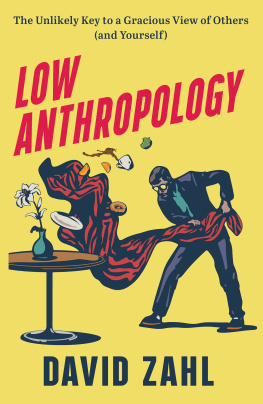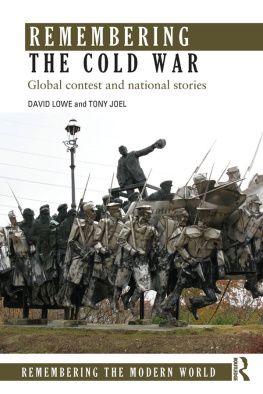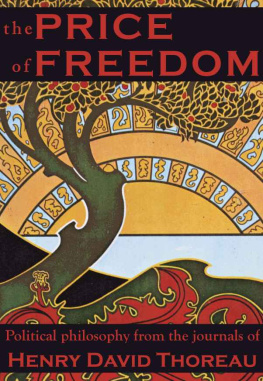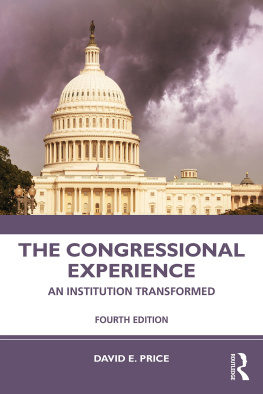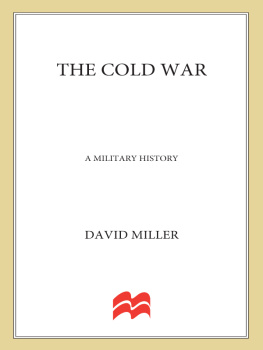David H. Price - Cold War Anthropology
Here you can read online David H. Price - Cold War Anthropology full text of the book (entire story) in english for free. Download pdf and epub, get meaning, cover and reviews about this ebook. year: 2016, publisher: Duke University Press, genre: Politics. Description of the work, (preface) as well as reviews are available. Best literature library LitArk.com created for fans of good reading and offers a wide selection of genres:
Romance novel
Science fiction
Adventure
Detective
Science
History
Home and family
Prose
Art
Politics
Computer
Non-fiction
Religion
Business
Children
Humor
Choose a favorite category and find really read worthwhile books. Enjoy immersion in the world of imagination, feel the emotions of the characters or learn something new for yourself, make an fascinating discovery.
- Book:Cold War Anthropology
- Author:
- Publisher:Duke University Press
- Genre:
- Year:2016
- Rating:4 / 5
- Favourites:Add to favourites
- Your mark:
- 80
- 1
- 2
- 3
- 4
- 5
Cold War Anthropology: summary, description and annotation
We offer to read an annotation, description, summary or preface (depends on what the author of the book "Cold War Anthropology" wrote himself). If you haven't found the necessary information about the book — write in the comments, we will try to find it.
Cold War Anthropology — read online for free the complete book (whole text) full work
Below is the text of the book, divided by pages. System saving the place of the last page read, allows you to conveniently read the book "Cold War Anthropology" online for free, without having to search again every time where you left off. Put a bookmark, and you can go to the page where you finished reading at any time.
Font size:
Interval:
Bookmark:
David H. Price

COLD WAR ANTHROPOLOGY

THE CIA, THE PENTAGON, AND THE GROWTH OF DUAL USE ANTHROPOLOGY
Duke University Press | Durham and London | 2016
2016 Duke University Press
All rights reserved
Printed in the United States of America on acid-free paper
Text designed by Mindy Basinger Hill
Typeset in Minion and Futura by Westchester Publishing Services
Library of Congress Cataloging-in-Publication Data
Names: Price, David H., [date] author.
Title: Cold War anthropology : the CIA, the Pentagon, and the growth of dual use anthropology / David H. Price.
Description: Durham : Duke University Press, 2016.|Includes bibliographical references and index.
Identifiers: LCCN 2015037300 |
ISBN 9780822361060 (hardcover : alk. paper) |
ISBN 9780822361251 (pbk. : alk. paper) |
ISBN 9780822374381 (e-book)
Subjects: LCSH : AnthropologyPolitical aspectsUnited StatesHistory20th century.|AnthropologistsPolitical activityUnited StatesHistory20th century.|Military intelligenceUnited StatesHistory20th century.|Science and state United StatesHistory20th century.|Cold War.|United States. Central Intelligence Agency.|United StatesHistory1945
Classification: LCC GN 17.3. U 5 P 75 2016| DDC 301.097309/04dc23
LC record available at http://lccn.loc.gov/2015037300
FOR MIDGE WITH LOVE, SQUALOR, AND THANKS FOR HAVING THE STAMINA TO SO OFTEN APPEAR INTERESTED ENOUGH THROUGHOUT THE YEARS OF ONGOING UPDATES ON THIS SEEMINGLY ENDLESS PROJECT.
Anthropology since its inception has contained a dual but contradictory heritage. On the one hand, it derives from a humanistic tradition of concern with people. On the other hand, anthropology is a discipline developed alongside and within the growth of the colonial and imperial powers. By what they have studied (and what they have not studied) anthropologists have assisted in, or at least acquiesced to, the goals of imperialist policy.
RADICAL CAUCUS OF THE AMERICAN ANTHROPOLOGICAL ASSOCIATION | 1969

Anthropologists who study South Pacific cargo cults have come to expect and receive research grants as much as Melanesians expect to receive cargo.
TERRENCE BELL | 1989
CONTENTS
The analytic branch of the CIA is given to tweedy, pipe-smoking intellectuals who work much as if they were doing research back in the universities whence many of them came. It probably has more Ph.Ds than any other area of government and more than many colleges. Their expertise ranges from anthropology to zoology. Yet, for all that, they can be wrong.
STANSFIELD TURNER | former director of Central Intelligence, 1985

This book considers some of the ways that military and intelligence agencies quietly shaped the development of anthropology in the United States during the first three decades of the Cold War. Whether hidden or open secrets, these interactions transformed anthropologys development in ways that continue to influence the discipline today. This is an anthropological consideration of anthropology; studying up in ways I hope help the discipline reconsider its inevitable engagements with the world it studies (Nader 1972).
In many of the early Cold War interfaces connecting anthropology and military-intelligence agencies documented here, the anthropologists producing research of interest to governmental agencies pursued questions of genuine interest to themselves and their discipline. Sometimes gentle nudges of available funding opportunities helped anthropologists choose one particular element of a larger topic over another; in other instances anthropologists independently pursued their own intellectual interests, producing work that was only later of interest or of use to military or intelligence agencies. In some instances anthropologists recurrently produced work of no value to, or opposing policies of, these agencies. Anthropological research was sometimes directly commissioned to meet the needs of, or answer specific questions of, military and intelligence agencies, while other times sponsorship occurred without funded anthropologists knowledge.
Laura Nader argues that one of anthropologys fundamental jobs is to provide context: to enlarge the scope of study beyond particular instances and encompass larger contexts of power, mapping powers influence on the creation and uses of social meanings. Understanding power involves studying the economic and social systems from which power relations arise. Given the military-industrial complexs dominance in postwar America, anthropologists might well expect to find the explanatory systems of our culture to be embedded in and reflecting these larger elements of militarization in ways that do not appear obvious to participants. Cultures frequently integrate, generally without critical reflection, core features of their base economic systems into widely shared ideological features of a society. Most generally these are seen as naturally occurring features of a culture, often ethnocentrically assumed to be views shared by any society. Among pastoral peoples this may mean that religious systems integrate metaphors of gods as shepherds (who shall not want), pristine despotic hydraulic states worshipping their chief bureaucratic administrators as god-kings, or capitalists constructing versions of a Jesus whose Sermon on the Mount somehow supports the cruelties of laissez-faire capitalism. Such ideological integrations of a societys economic foundations are common subjects of anthropological inquiry, though the disciplinary histories of the last half century have seldom consistently focused on political economy as a primary force shaping the theory and practice of anthropology.
Anthropologists, sociologists, and some disciplinary historians study the interplay between political economy and the production and consumption of anthropological knowledge. Since Karl Mannheims (1936) observations on the sociology of knowledge systems, there has been broad acceptance of such links. Thomas Pattersons Social History of Anthropology in the United States (2003) connects political and economic impacts on the development of the discipline. Anthropologists like June Nash, Eric Wolf, Gerald Berreman, Kathleen Gough, or Sidney Mintz direct attention to the political and economic forces shaping field research or the selection of research topics (whether peasants or geopolitical regions) (Berreman 1981; Gough 1968; Mintz 1985; Nash 2007: 3; Jorgensen and Wolf 1970). Eric Rosss Malthus Factor (1998b) brilliantly shows how the development of demographic theory from the age of Malthus to the Cold War was inherently linked to the political economy of the age. In different ways, William Roseberrys essay The Unbearable Lightness of Anthropology (1996) and Marvin Harriss Theories of Culture in Postmodern Times (1998) challenged anthropologists to connect postmodernisms explicit neglect of the importance of political economy with broader disciplinary political disengagements. Critiques of colonialisms impact on anthropology by Asad (1973), Gough (1968), and others dominated discourse in the 1970s and significantly shaped anthropologys understanding of its role in political and economic-colonial formations. Yet, while the Central Intelligence Agency ( CIA) , the Pentagon, and facets of American militarism marked political crises from Project Camelot to the Thai Affair, anthropologists scholarly attempts to put the agency back in the Central Intelligence Agency have been episodic and fleeting. Joseph Jorgensen and Eric Wolfs (1970) essay, Anthropology on the Warpath in Thailand, provided a framework and sketched enough details to launch the serious academic pursuit of such questions, yet the academic pursuit of documenting such disciplinary interactions remained largely ignored.
Next pageFont size:
Interval:
Bookmark:
Similar books «Cold War Anthropology»
Look at similar books to Cold War Anthropology. We have selected literature similar in name and meaning in the hope of providing readers with more options to find new, interesting, not yet read works.
Discussion, reviews of the book Cold War Anthropology and just readers' own opinions. Leave your comments, write what you think about the work, its meaning or the main characters. Specify what exactly you liked and what you didn't like, and why you think so.




